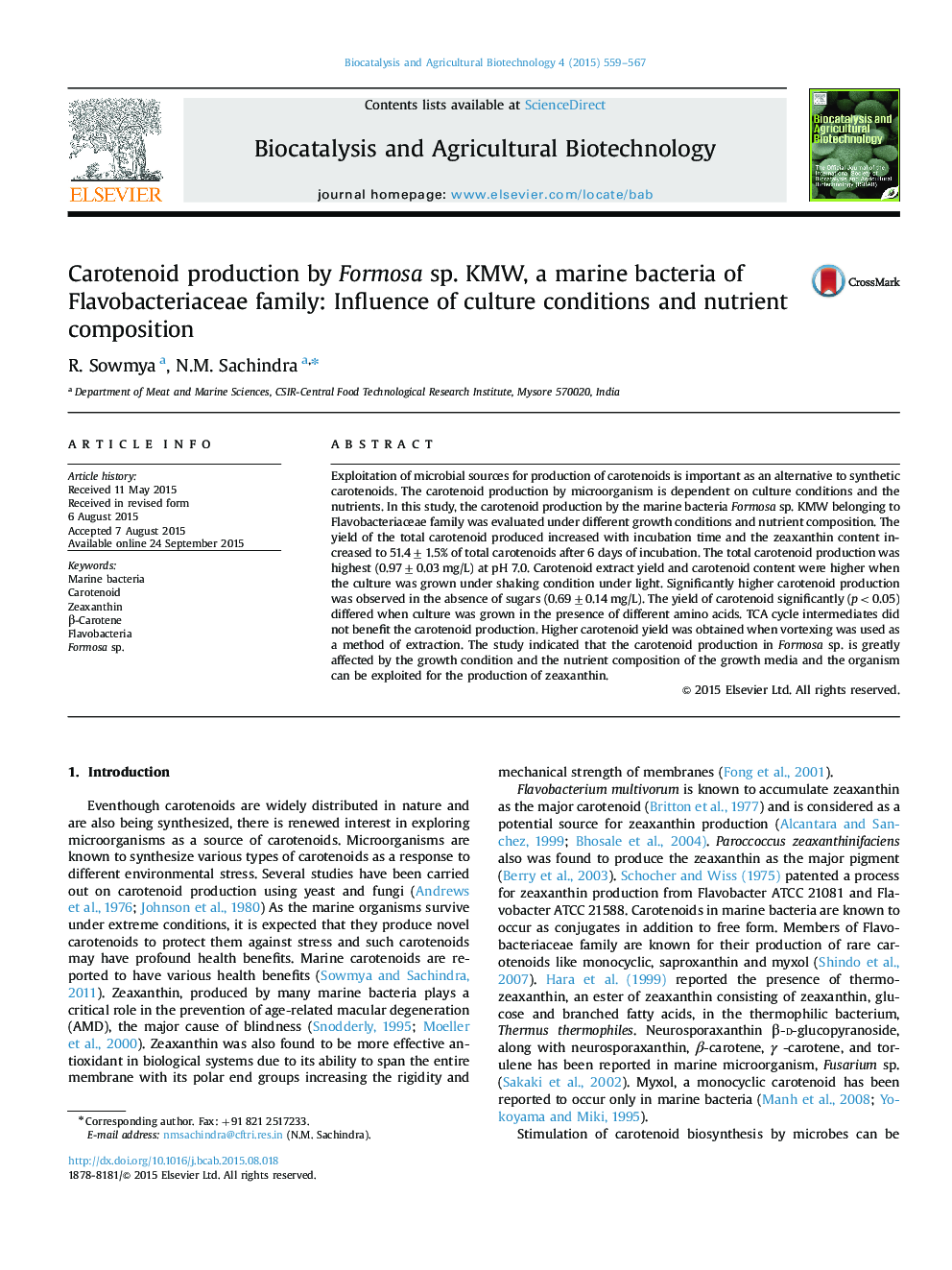| Article ID | Journal | Published Year | Pages | File Type |
|---|---|---|---|---|
| 2075308 | Biocatalysis and Agricultural Biotechnology | 2015 | 9 Pages |
Exploitation of microbial sources for production of carotenoids is important as an alternative to synthetic carotenoids. The carotenoid production by microorganism is dependent on culture conditions and the nutrients. In this study, the carotenoid production by the marine bacteria Formosa sp. KMW belonging to Flavobacteriaceae family was evaluated under different growth conditions and nutrient composition. The yield of the total carotenoid produced increased with incubation time and the zeaxanthin content increased to 51.4±1.5% of total carotenoids after 6 days of incubation. The total carotenoid production was highest (0.97±0.03 mg/L) at pH 7.0. Carotenoid extract yield and carotenoid content were higher when the culture was grown under shaking condition under light. Significantly higher carotenoid production was observed in the absence of sugars (0.69±0.14 mg/L). The yield of carotenoid significantly (p<0.05) differed when culture was grown in the presence of different amino acids. TCA cycle intermediates did not benefit the carotenoid production. Higher carotenoid yield was obtained when vortexing was used as a method of extraction. The study indicated that the carotenoid production in Formosa sp. is greatly affected by the growth condition and the nutrient composition of the growth media and the organism can be exploited for the production of zeaxanthin.
